Ask any Singaporean when is the best time to visit Singapore, and they’ll most likely say there’s no such thing as the ‘best’ time to visit Singapore. And that’s not without reason. Being a tropical country, Singapore enjoys a steady 12 hours of sunlight every day, an average temperature of 32ºC and an average annual rainfall of 2,200mm. Coupled with the unpredictable weather these days, it’s challenging to pinpoint the best period to visit Singapore. However, we can recommend the best time to visit according to the type of traveller you are.
Are you a backpacker looking for budget experiences? Are you travelling with the elderly or children? Are you looking to relax the day away at the infinity pool on top of Marina Bay Sands? We have different recommendations for the ‘best’ time to visit Singapore, depending on your travel style. We’ve put together some helpful information on which months to travel based on your travelling style. But first, let’s dive into a generic overview of Singapore’s weather.
Contents
Best Time To Visit Singapore
Best Time To Visit Singapore For The Weather
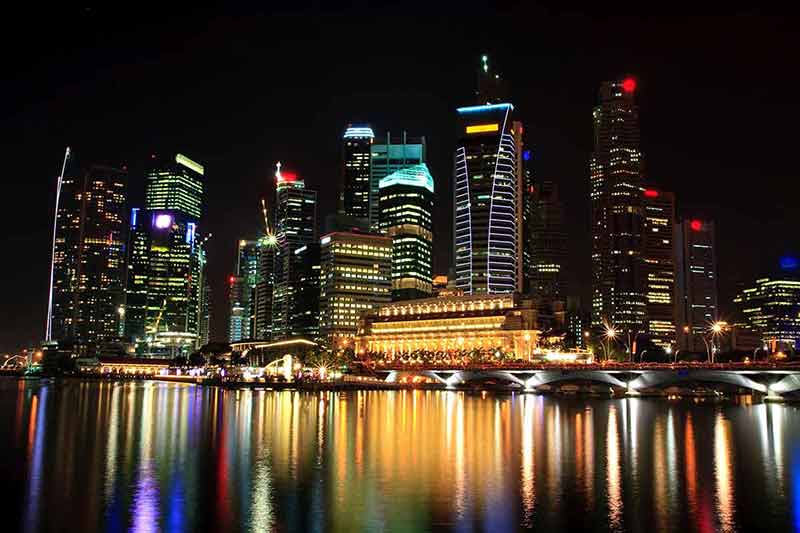
Singapore, situated at just a mere 1.35° above the Equator, experiences only two seasons throughout the year – hot and hotter.
Due to the equatorial location, temperatures average at around 31 to 33ºC during the day and 23 to 25ºC at night, all year round.
May to June sees the highest average monthly temperature (at about 28ºC), while December to January sees the coolest temperature of about 26ºC.
There are two monsoon seasons – the Northeast Monsoon season from December to March and the Southwest Monsoon season from June to September.
The Northeast Monsoon is split into wet (December to early January) and dry (late January to early March) phases.
So it’s best to visit during the dry time where wind speeds are still high but rainfall low.
For the Southwest Monsoon, Singapore sees short bouts of heavy and sudden torrential showers/thunderstorms. So travellers looking to travel during those months should carry along an umbrella at all times.
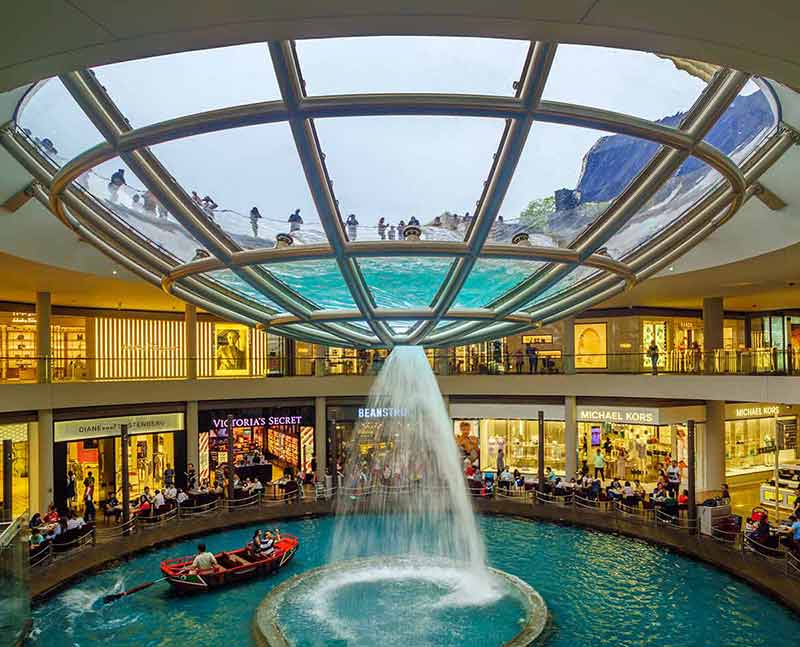
Like most countries, Singapore has not been spared the effects of climate change, and weather patterns have been erratic of late.
Carrying an umbrella is something that most Singaporeans do and you’ll do well heeding that advice to prevent being caught up in Singapore’s temperamental weather.
Singapore has an excellent mixture of indoor and outdoor attractions, so assuming you’re on a flexible schedule (which you probably should be, considering Singapore’s small size and ease of using public transport), you can easily switch up itineraries should it suddenly rain.
Tips:
- Avoid December to early January and June to September if you plan on doing a lot of outdoor activities.
- Mid-January to March is the best window for outdoor enthusiasts.
- If you plan to come to Singapore for shopping, the weather should not affect you much as underground walkways or link bridges connect most major shopping destinations.
- It is highly advisable to bring along an umbrella.
- 20 Famous Landmarks In Singapore
- 20 Incredible Places To Visit In Singapore
- Best Time To Visit Singapore
- Scoot Airlines Review
- Singapore Airlines vs Scoot Airlines
- 15 Things To Do In Changi Airport
- Fullerton Bay Hotel Review
- Where To Find The Best Singapore Street Noodles
- 20 Bars In Singapore You Will Love
- 20 Things To Do In Singapore At Night
- Where To Stay In Singapore
- 20 Singapore Museums
- 13 Beaches In Singapore
- 18 Places To Go Shopping In Singapore
- 15 Things Singapore Is Famous For
Best Time To Visit Singapore For Hotel Rates
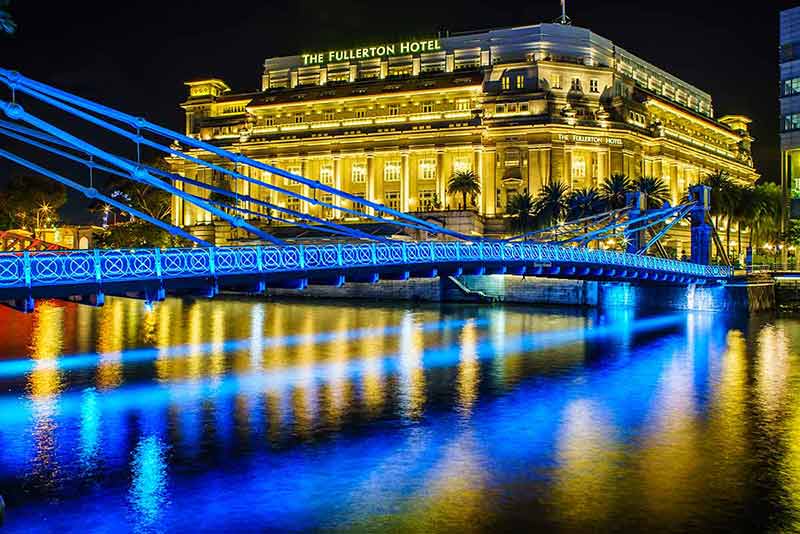
Have you looked up which month has the cheapest hotel rates and been confused by tons of websites, all with slight variations?
Here are tips backed up by statistics published by the Singapore Tourism Board (STB).
Like all other government bodies in Singapore, STB strives to be transparent, so these statistics are readily available online for anyone to reference.
Those trying to avoid crowds of tourists should avoid travelling from July to August, where the visitor arrivals are at an all-time high.
Instead, you might want to consider travelling in the low season of May and December.
As for those trying to get the best bargain deals on hotel rates, you should avoid February, September and December while capitalising on the dip in May.
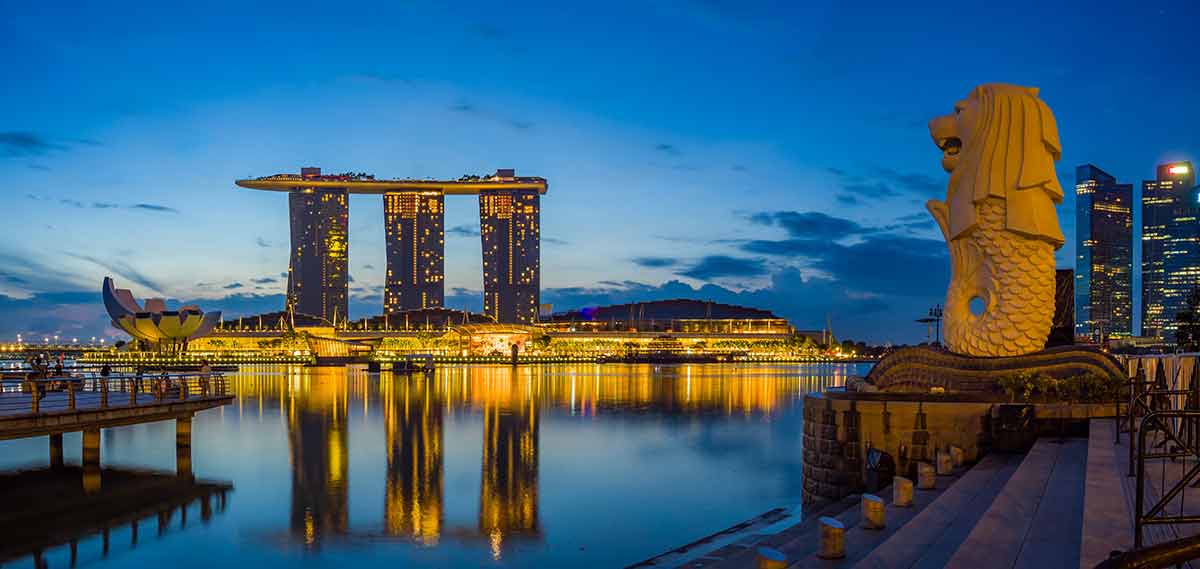
However, note that there is only a significant dip in prices for hotels in the upscale and luxurious category, meaning those averaging S$250/night and S$450/night.
If you’re a budget traveller staying in cheaper abodes, there is not much of a difference (less than S$5/night difference).
Tips:
- To avoid the crowds, travel in May and December.
- For the cheapest rates at upscale and luxury hotels, travel in May.
- Price fluctuations in the economy and mid-tier hotels are negligible unless you’re staying long term.
Best Time To Visit Singapore For Shopping
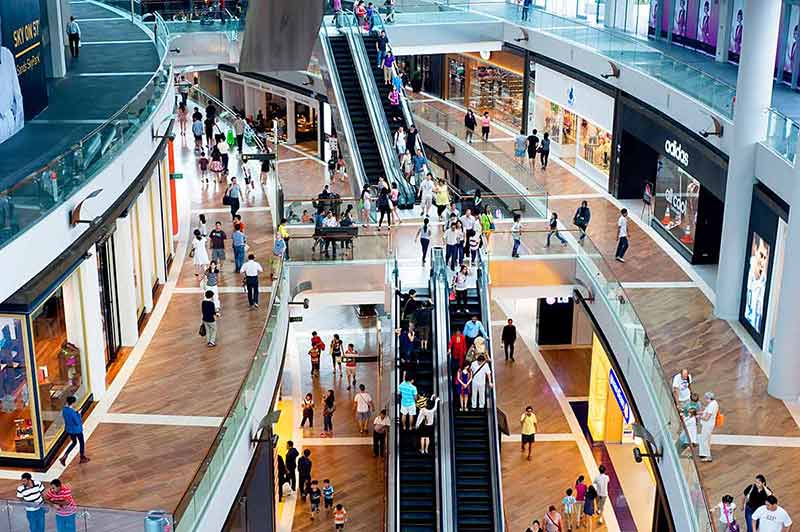
Singapore is a shoppers’ haven, with places like Orchard Road, where the entire 2.2km is filled with shopping malls), Bugis Street, with its bargain stores and Marina Bay Sands for luxury goods.
There are shopping malls situated at many major attractions, and it’s easy to see why wholesale and retail sales topped S$82 billion even during 2020 when COVID hit.
Travellers from Southeast Asia often head to Singapore for the weekend to shop, especially when stores slash up to 80% off their prices.
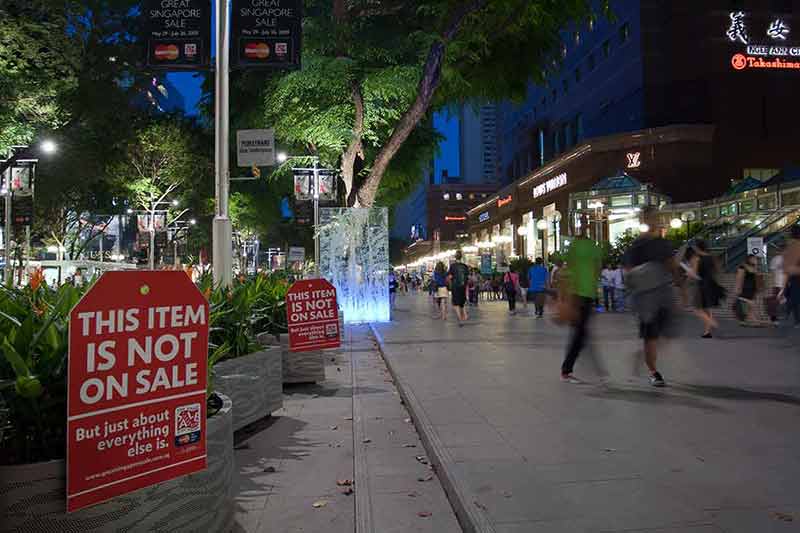
Singapore has two distinct significant sales periods:
- the Great Singapore Sale (GSS) is held from June to July (exact dates differ slightly each year) and
- the year-end clearance sales include the Singles Day 11.11 sale, Black Friday sale, and generic Christmas sale.
Most large and small retailers participate in the GSS and will likely partner with major international payment networks like Visa and Mastercard to offer attractive perks.
The iconic 11.11 sale, inspired by China’s biggest shopping day of the year, was originally for online retailers, but many brick-and-mortar shops have taken to it and offered up their version in a bid to attract customers.
Travellers aiming for the Black Friday or Christmas sales have the added benefit of enjoying the festive decorations that create a cheerful atmosphere in stores and shopping streets.
Travellers who spend more than S$100, including the Goods and Services Tax (GST), in a single receipt at participating outlets can claim the 7% GST refund at the airport before departure.
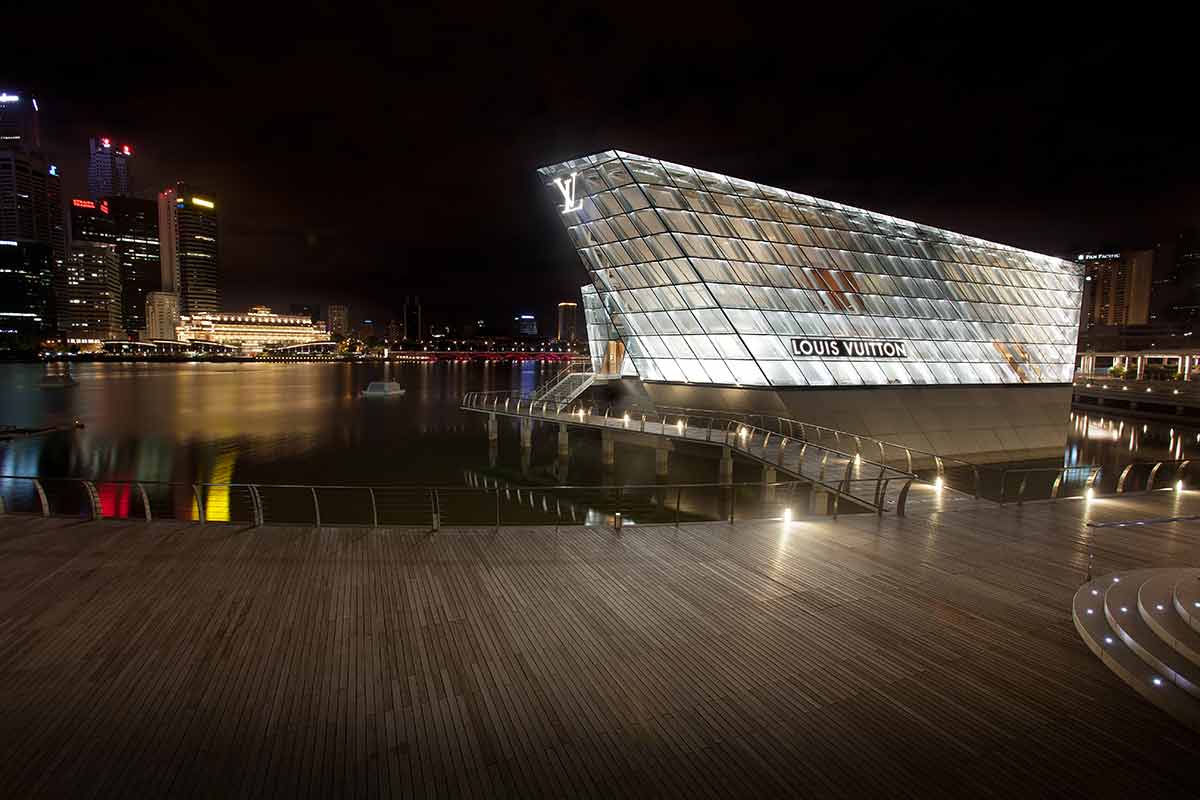
Look for a “Tax-free” shopping logo displayed in-store or ask the retail staff if the store participates in the Tourist Refund Scheme (TRS).
Do note that you’ll need to show your physical passport and not a photocopy or image.
The Singaporean authorities have made it very convenient for travellers to claim their refunds through these two methods:
- Use the e-TRS to receive refunds via the electronic self-help kiosks at the airport without repeatedly filling different tax refund forms from various stores.
- Download the new eTRS mobile application by Global Blue or Tourego and follow the in-app instructions for even greater convenience.
When you’re ready to claim your tax refund at the airport, make sure you turn on your location services and be within a 15m radius of the self-help kiosks at the airport.
Tips:
- For major shopaholics looking to do some retail therapy in Singapore, keep your passports with you at all times to get a refund on your 7% GST.
- The best time to take advantage of the sales is June to July or November to December.
- If you’re a budget traveller who does not intend to spend much at major retail and luxury outlets, disregard this section as most small standalone stores do not participate in the TRS, and the refund amount will be almost negligible as well.
Best Time To Visit Singapore For Festivals and Events
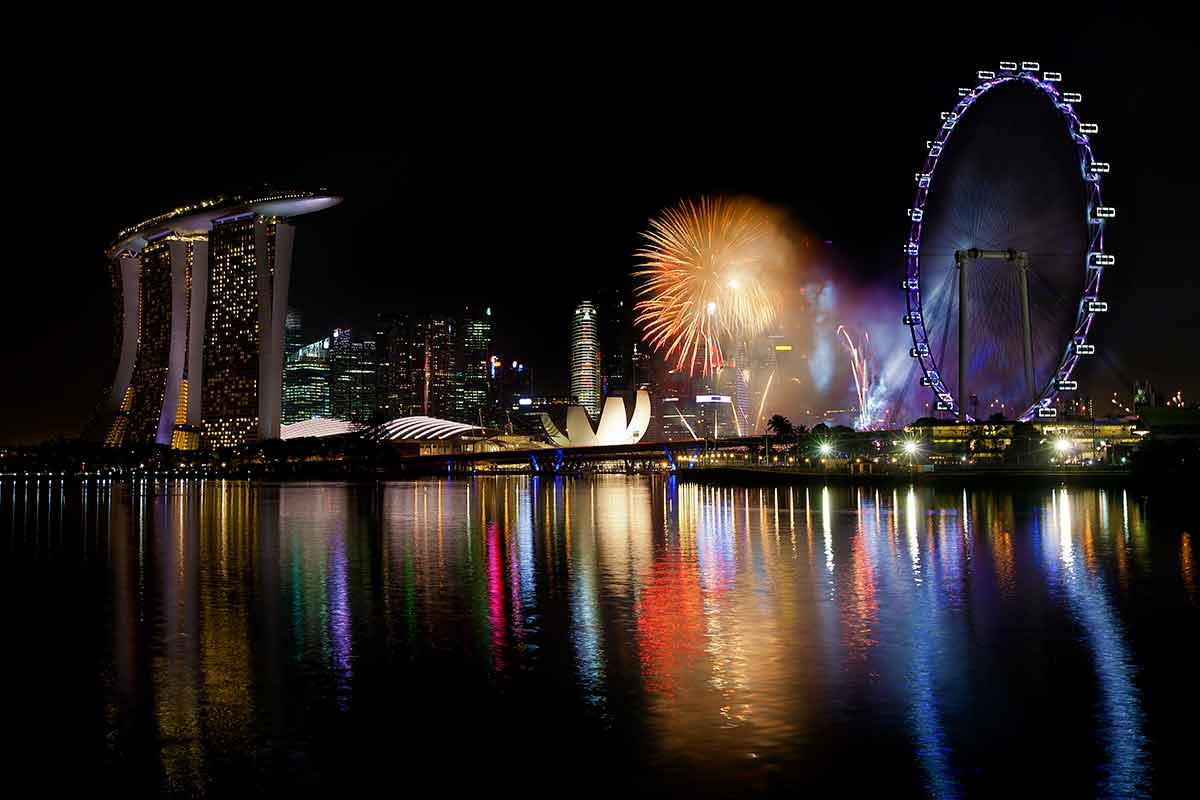
The cultural melting pot of Singapore comes with a plethora of cultural festivities scattered throughout the year.
Singapore is a cosmopolitan, multiracial and multireligious country.
Here, we celebrate Chinese New Year, Hari Raya Puasa, Deepavali and Christmas.
However, I’ve personally not heard of anyone travelling to Singapore just to enjoy the festivities, so these are more of a bonus if you happen to visit during major festivals.
Festivities might impact business hours, so take note but generally, you can expect that most shops will open for business as usual.
Chinese New Year and Chingay (January/February)
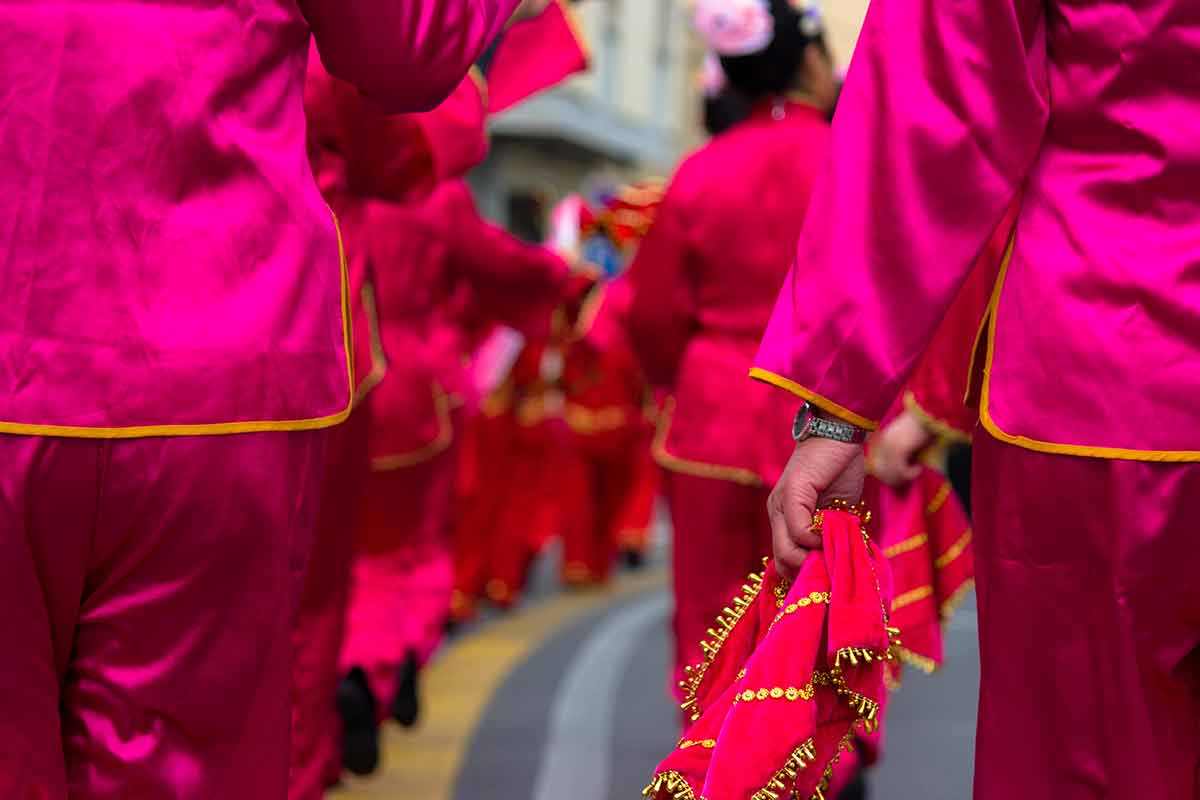
Depending on the lunar calendar, which changes each year, Chinese New Year (CNY) tends to be around January and February, so do a quick Google check before deciding on your travel dates.
Do you want to avoid the biggest festivity of the year (considering that the Singaporean population is 75% ethnic Chinese), or do you want to participate in the festivities?
Despite being one of the year’s most significant events, most attractions, retail shops, and restaurants are still open, although business hours might be affected.
Again, ask Google to check if the places you want to visit are open.
Travelling during CNY is quite bustling and lively, with major attractions decked out in bright red and blasting out festive Chinese songs.
Think dragon and lion dance performances, loud gongs, cymbals and drums, flashy bright colours everywhere, and flashy fireworks at night.
If this appeals to you, CNY is a feast for the eyes, and there’s also a literal feast of the delicious food served in restaurants.
Some attractions worth visiting are the River Hongbao event and also the Chingay Parade.
River Hongbao is a local event unique to Singapore that dates back to 1987.
The main highlights are the numerous giant lantern displays that light up the location and the entertaining lion and dragon dance performances.
Chingay is a Hokkien term referring to ‘the art of costume and masquerade’. And as the name suggests, it’s a dazzling display of lights, showy costumes and massive decorated floats.
Although Chingay is held during CNY, it’s more of a celebration of Singapore’s multiculturalism. Think a small-scale Mardi Gras put on by organisations and government bodies with a lot less partying. This doesn’t mean it isn’t fun, just that it’s more of a visual spectacle than anything else.
Ramadan and Hari Raya Aidilfitri (typically in May)
Drop by Geylang Serai Ramadan Bazaar during the Muslim month of Ramadan and get caught up in the festive mood while stuffing yourself with street food and cheap thrills.
Every year, the streets of Paya Lebar Quarter to Sims Avenue, Changi and Geylang light up with street lighting and decorations.
Considered one of the largest bazaars in Singapore, Muslims and non-Muslims alike flock here to partake in the festivities.
Deepavali (November)
Living up to its ‘Festival of Lights’ tag, Little India celebrates Deepavali by lighting up the streets with glittering lightings and decorations featuring oil lamps, peacocks and rangoli.
Indulge in the festive mood by devouring authentic Indian dishes, exploring a Hindu temple, or walking the area.
You’ll be amazed by how different the atmosphere is compared to anywhere else in Singapore.
Christmas (December)
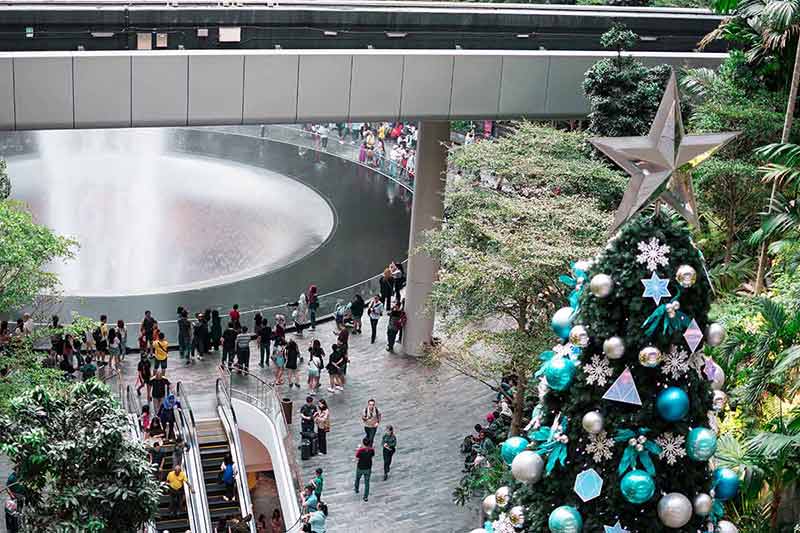
Singapore’s streets are adorned with Christmas lights and themed decorations.
The malls compete to put up the tallest Christmas tree and the best decorations.
Major attractions like Universal Studios and Gardens by the Bay are especially festive during this season but be prepared to be squeezed in a crowd like a sardine (post-COVID, of course).
Tips:
- There’s a major festival or event almost every month of the year. Do check online which festivities/events are ongoing during the period you’re travelling and see if you want to check it out.
- Besides the major events stated above, Singapore hosts many local festivals to celebrate the burgeoning arts and culture scene. Some festivals include the Singapore International Festival of Arts (May-June), Singapore International Film Festival (November-December), Singapore Food Festival (June-July), Singapore Night Festival (August) etc. Dates are indicative so visit the official website for the latest confirmed dates.
So have you found the ‘best’ time to visit Singapore based on your travelling style?
| Type of Traveller | When to Visit | Why? |
|---|---|---|
| Travelling with children | Mid-January to March | Less chance of rain so the kids can enjoy outdoor activities. |
| Senior travellers | January, February or December | Enjoy festivities during these periods stay forever young. |
| Backpackers and outdoor enthusiasts | Mid-January to March | Less chance of rain |
| Luxury travellers | May and December | Lowest hotel rates for upscale to luxury hotels in May while May and December are the quietest months. |
| Shopaholics | June, July, November, December | Best sales in town |
Plan Your Trip
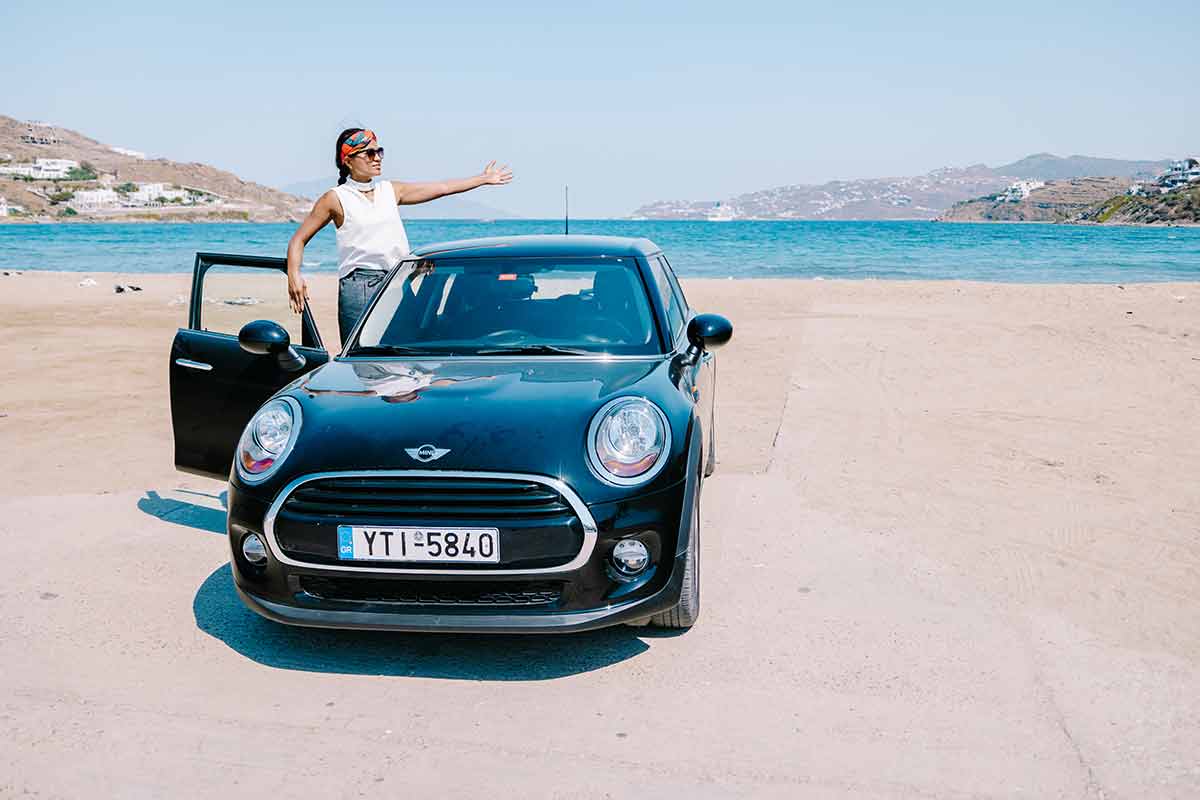
Rent A Car – Find the best car rental rates at Discover Cars. They compare car hire companies to provide you with the best deal right now.
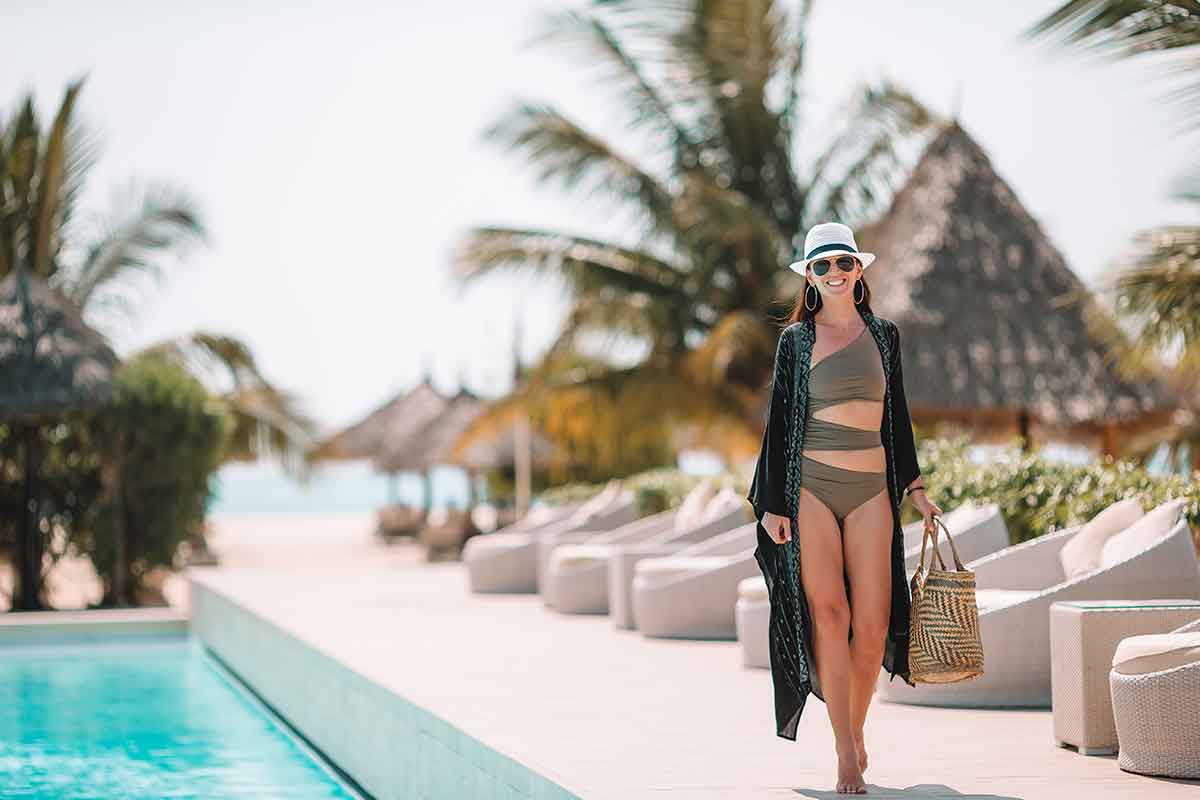
Find A Hotel – If you’re curious about this article and are looking for somewhere to stay, take a look at these amazing hotels.

